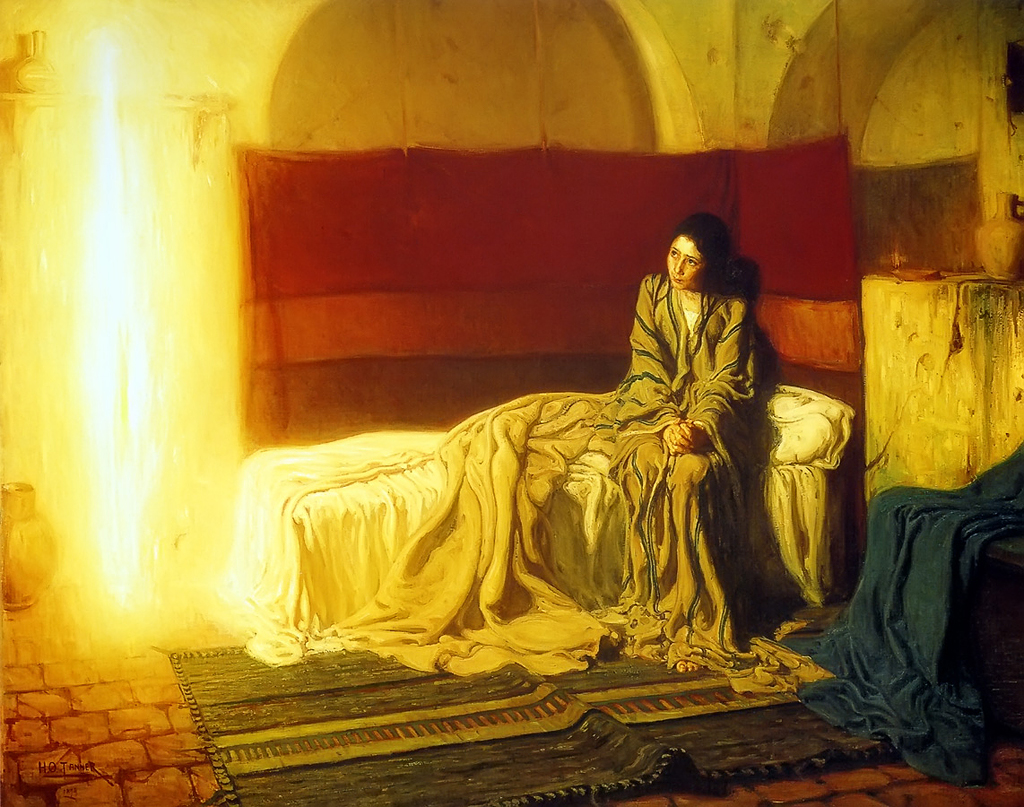On Mary and Motherhood
Femininity is something that strikes most evangelical Christians as foreign, even worthy of suspicion. As a convert to the Roman Catholic church, many acquaintances greet the news of my journey with surprise or curiosity, yet some have asked the question, even innocuously enough, "So, do you like, worship Mary now?" With this and many more mountains of mythology to tackle, I add this reflection on motherhood as an appropriate occasion to defend the Theotokos, the bearer of God, the sinless, Mother of the Church, Mary of Nazareth.
I notice in a general sense that Protestants, especially North American evangelicals, approach theology, doctrine, even scripture with a masculine lens, brimming with male energy. Paradoxical, poetic, and ambiguous passages are rarely cited in a sunday sermon, doctrinal statement, creed, or evangelistic exposition. We, like the apostle Paul, speak with certainty, dominance, and assuredness that Christ is victorious, supreme, and conqueror of the heterodox, the champion of salvation on whose head the crown of glory is given. We enjoy militaristic language and imagine Jesus less with his arms around us than with his arms outstretched to deflect the assaults of demonic forces. This is so clear in modern drama, artwork, or preaching, that I'll be you can imagine it in your head right now. Sure, we know Jesus can get cuddly and lift a lamb or two over his shoulders, but you bet those hands are ready to karate-chop Satan the minute his scaly hands reach over the brim of the pit...
I'm not going to introduce Mary to compliment Jesus or add to a fuller picture of his role in our faith. Ultimately, any discussion of Christ is sufficient in his salvific work on the cross and resurrection. Still, where would our faith be without genuine influence on community, on our lives, and in the very depths of our identity? Mary, then, shows us a unique picture of Jesus through his transformative work. It is hidden from view, bewildering to our western rationalism, and yet utterly powerful to our pilgrim community of faith.
Consider how Mary is introduced into our salvation history at the annunciation: the angel greets the virgin with the words "You are highly favored! The Lord is with you! (Luke 1:28)" Though perplexed, she hears out the prophetic words of the angel, outlining the way that the Holy Spirit will enable the divine to interact with our everyday. Her words are telling: "Here am I, the servant of the Lord; let it be done according to your word. (38)"
What strikes me is her vulnerability: though terror and doubt may grip her (as scripture indicates), she bares all, Here am I.
Secondly, her Fiat. Let it Be. God breaks into our sphere by interacting with our own human will. We see the ugly vines overgrown since Eden begin to unravel, and the Holy Spirit complies with her consent. The Virgin is with child; Hope breaks across the horizon for Israel. Even more beautifully, Luke includes an early liturgical hymn to represent Mary's response later when she visits with Elizabeth. Here Mary speaks for the whole Church when she sings "My soul magnifies the Lord, and my Spirit rejoices in God my Savior...(46)"
This mystery of the Incarnation thus presents Mary as a true icon for our faith. She was literally the closest to Jesus, with the divine finding a human home first in her own womb. My growing Catholic faith encourages me to find increasing worth in the questions of substance, essence, and other loaded terms. While I hardly have a theologian's grip on it, I am learning that there is something very important about the fact that God, who is Spirit, found a need to dwell and meet vulnerability for himself. The attitude of the Magnificat is therefore sustained in the Church through all time until the Kingdom comes in its fullness. Catechism 969 says it beautifully:
This motherhood of Mary in the order of grace continues uninterruptedly from the consent which she loyally gave at the Annunciation and which she sustained without wavering beneath the cross, until the eternal fulfilment of all the elect.
Yes, you read that right: beneath the cross. Her "yes" is expressed outside of the limits of our time, just as the work of the cross is no "one time" thing. This is where it really gets crazy: the salvation work of Christ in forming us as redeemed, purified children also worked in Mary first. Thus she is the Immaculate Conception, the one human being (whole, not Jesus) that was perfectly sinless from birth. No, she does not enact our salvation. That is the work of Christ alone (Catechism 970). Rather, the transformative relationship with Christ is expressed fully in our humanity through Mary--demonstrating the potential of the cross in a powerful way. Our Eastern brothers and sisters are on to something in their veneration of Mary as Theotokos: the Mother of God.
I see my own mother and rejoice in the potential of our humanity, striving to take her virtue and apply it to my own life. In this way, we need the saints to pave the road for our faith, and surely in the Church where we are obliged to hold one another in common relationship with Jesus. May we take a cue from Mary and allow Jesus to fully shape us, uninhibited by our fears of sin, our rational imaginations, but fully vulnerable and aligned with her simple, perpetual "Yes."
Holy Mary, Mother of God, pray for us, now and at the hour of our death.

Comments
Post a Comment